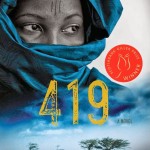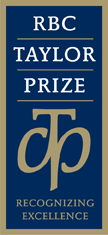 For fans of non-fiction, it doesn’t get much better than the RBC Talyor Prize for Non-fiction. These titles represent the best of Canadian non-fiction writing in the previous year.
For fans of non-fiction, it doesn’t get much better than the RBC Talyor Prize for Non-fiction. These titles represent the best of Canadian non-fiction writing in the previous year.
This year’s recipient of the top prize is Thomas King for The Inconvenient Indian: A Curious Account of Native People in North America. (M)
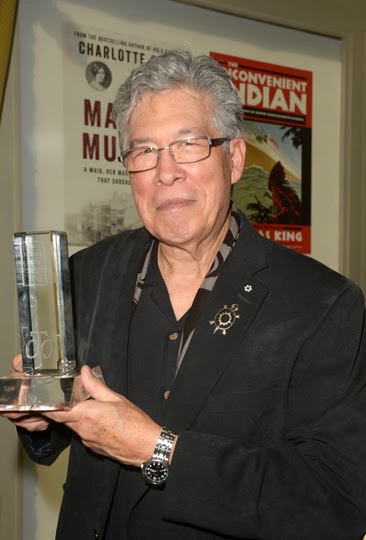 |
| Thomas King |
“The Inconvenient Indian is at once a ‘history’ and the complete subversion of a history–in short, a critical and personal meditation that the remarkable Thomas King has conducted over the past 50 years about what it means to be “Indian” in North America. Rich with dark and light, pain and magic, this book distills the insights gleaned from that meditation, weaving the curiously circular tale of the relationship between non-Natives and Natives in the centuries since the two first encountered each other.
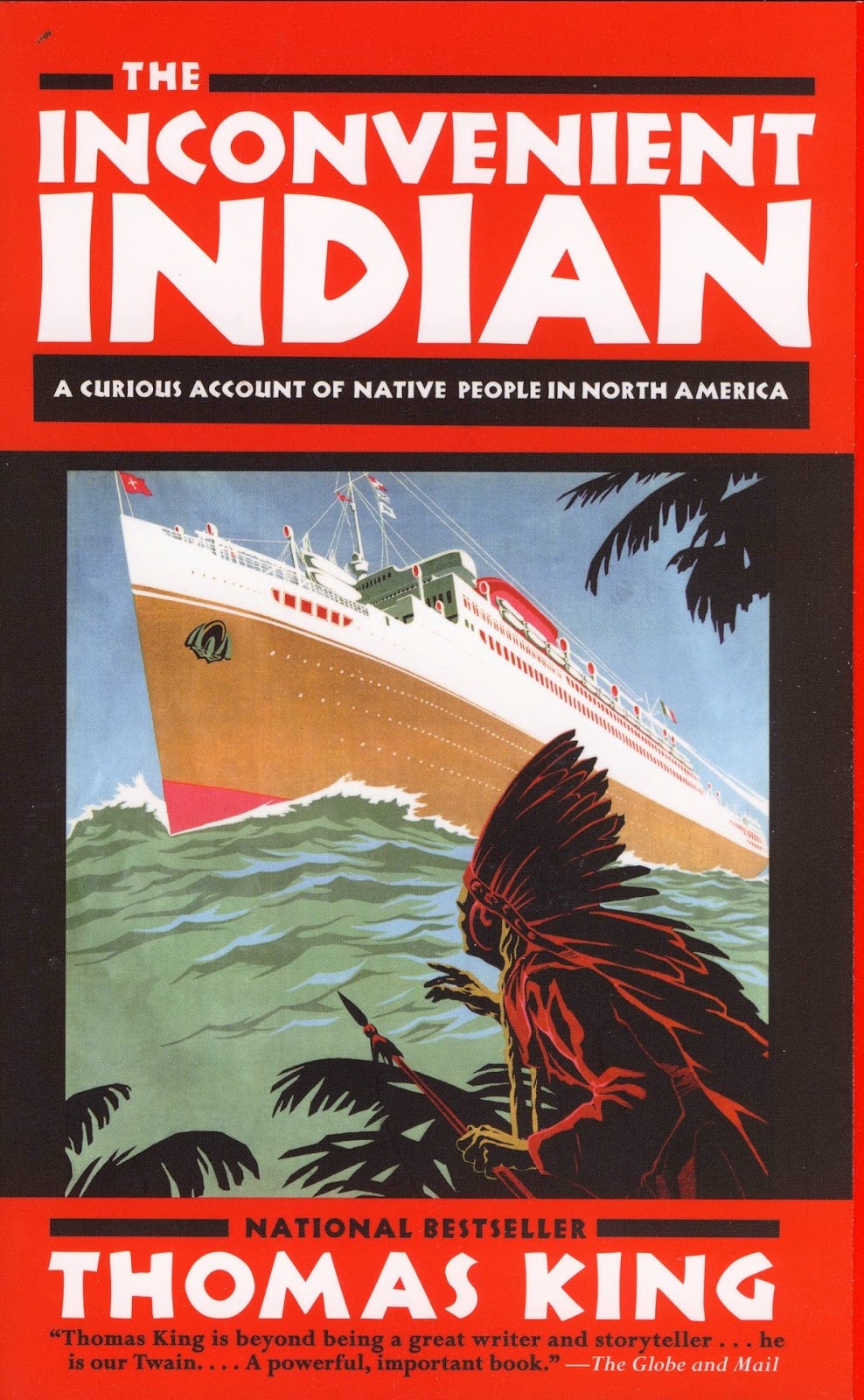 In the process, King refashions old stories about historical events and figures, takes a sideways look at film and pop culture, relates his own complex experiences with activism, and articulates a deep and revolutionary understanding of the cumulative effects of ever-shifting laws and treaties on Native peoples and lands. This is a book both timeless and timely, burnished with anger but tempered by wit, and ultimately a hard-won offering of hope — a sometimes inconvenient, but nonetheless indispensable account for all of us, Indian and non-Indian alike, seeking to understand how we might tell a new story for the future.”
In the process, King refashions old stories about historical events and figures, takes a sideways look at film and pop culture, relates his own complex experiences with activism, and articulates a deep and revolutionary understanding of the cumulative effects of ever-shifting laws and treaties on Native peoples and lands. This is a book both timeless and timely, burnished with anger but tempered by wit, and ultimately a hard-won offering of hope — a sometimes inconvenient, but nonetheless indispensable account for all of us, Indian and non-Indian alike, seeking to understand how we might tell a new story for the future.”
Also in the running this year were the following worthy titles:
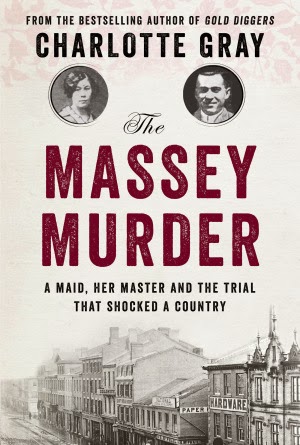 The Massey Murder: a Maid, her master, and the trial that shocked a country (M) by Charlotte Gray
The Massey Murder: a Maid, her master, and the trial that shocked a country (M) by Charlotte Gray
“Explores the 1915 murder of Charles “Bert” Massey, a member of one of Canada’s wealthiest families and the trial of Carrie Davies, an eighteen-year-old penniless domestic servant who quickly confessed to the crime.”
The Dogs Are Eating Them Now: our war in Afghanistan (M) by Graeme Smith
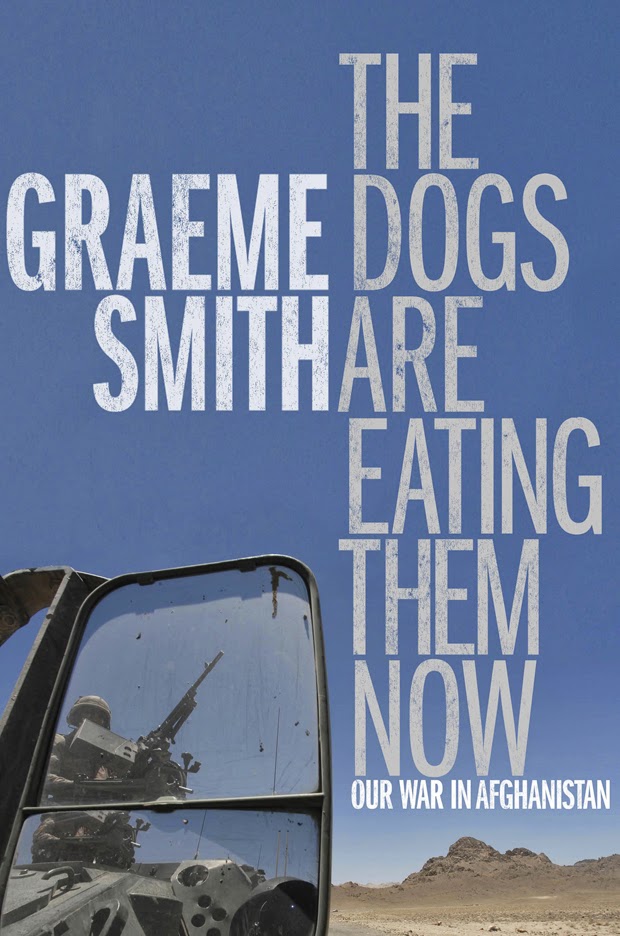 “A highly personal narrative of our war in Afghanistan and how it went dangerously wrong. Written by a former foreign correspondent, this is a gripping account of modern warfare that takes you into back alleys, cockpits and prisons. From the corruption of law enforcement agents and the tribal nature of the local power structure to the economics of the drug trade and the frequent blunders of foreign troops, this is the no-holds-barred story from a leading expert on the insurgency. A bold and candid look at the Taliban’s continued influence–and at the mistakes, catastrophes and ultimate failure of the West’s best intentions.”
“A highly personal narrative of our war in Afghanistan and how it went dangerously wrong. Written by a former foreign correspondent, this is a gripping account of modern warfare that takes you into back alleys, cockpits and prisons. From the corruption of law enforcement agents and the tribal nature of the local power structure to the economics of the drug trade and the frequent blunders of foreign troops, this is the no-holds-barred story from a leading expert on the insurgency. A bold and candid look at the Taliban’s continued influence–and at the mistakes, catastrophes and ultimate failure of the West’s best intentions.”
Arthur Erickson: an architect’s life (M) by David Stouck
 “Arthur Erickson, Canada’s preeminent philosopher-architect, was renowned for his innovative approach to landscape, his genius for spatial composition and his epic vision of architecture for people. Erickson worked chiefly in concrete, which he called “the marble of our times,” and wherever they appear, his buildings move the spirit with their poetic freshness and their mission to inspire. Erickson was also a controversial figure, more than once attracting the ire of his fellow architects, and leading a complicated personal life that resulted in a series of bankruptcies. In a fall from grace that recalls a Greek tragedy, Canada’s great architect–a handsome, elegant man who lived like a millionaire and counted among his close friends Pierre Trudeau and Elizabeth Taylor–eventually became penniless. Arthur Erickson is both an intimate portrait of the man and a stirring account of how he made his buildings work”.
“Arthur Erickson, Canada’s preeminent philosopher-architect, was renowned for his innovative approach to landscape, his genius for spatial composition and his epic vision of architecture for people. Erickson worked chiefly in concrete, which he called “the marble of our times,” and wherever they appear, his buildings move the spirit with their poetic freshness and their mission to inspire. Erickson was also a controversial figure, more than once attracting the ire of his fellow architects, and leading a complicated personal life that resulted in a series of bankruptcies. In a fall from grace that recalls a Greek tragedy, Canada’s great architect–a handsome, elegant man who lived like a millionaire and counted among his close friends Pierre Trudeau and Elizabeth Taylor–eventually became penniless. Arthur Erickson is both an intimate portrait of the man and a stirring account of how he made his buildings work”.
The Once and Future World: nature as it was, as it is, as it could be (M) by J.B. MacKinnon
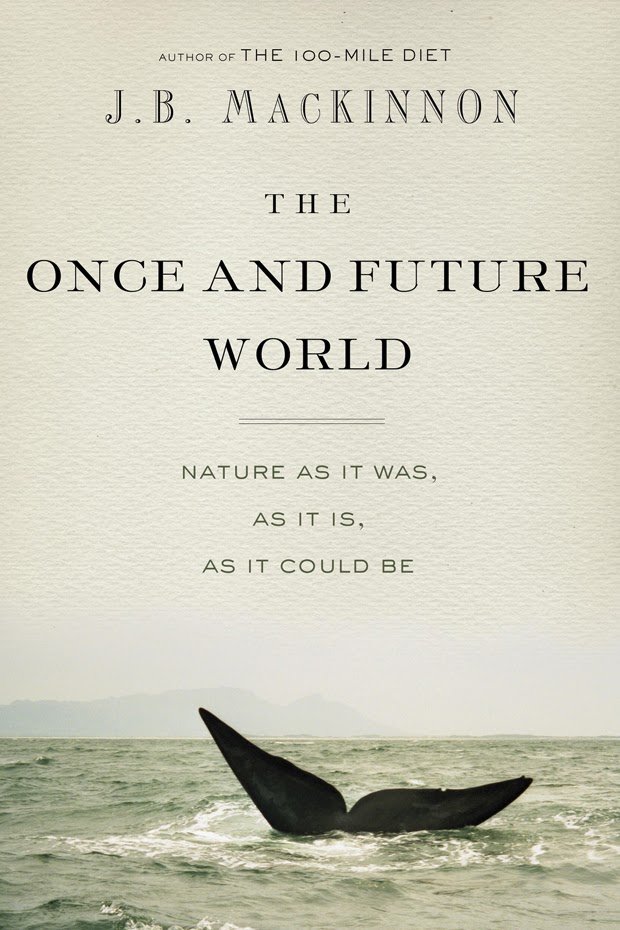 “The Once and Future World began in the moment J.B. MacKinnon realized the grassland he grew up on was not the pristine wilderness he had always believed it to be. Instead, his home prairie was the outcome of a long history of transformation, from the disappearance of the grizzly bear to the introduction of cattle. What remains today is an illusion of the wild–an illusion that has in many ways created our world. In 3 beautifully drawn parts, MacKinnon revisits a globe exuberant with life, where lions roam North America and 20 times more whales swim in the sea. He traces how humans destroyed that reality, out of rapaciousness, yes, but also through a great forgetting. Finally, he calls for an “age of restoration,” not only to revisit that richer and more awe-filled world, but to reconnect with our truest human nature. MacKinnon never fails to remind us that nature is a menagerie of marvels. Here are fish that pass down the wisdom of elders, landscapes still shaped by “ecological ghosts,” a tortoise that is slowly remaking prehistory. “It remains a beautiful world,” MacKinnon writes, “and it is its beauty, not its emptiness, that should inspire us to seek more nature in our lives.”
“The Once and Future World began in the moment J.B. MacKinnon realized the grassland he grew up on was not the pristine wilderness he had always believed it to be. Instead, his home prairie was the outcome of a long history of transformation, from the disappearance of the grizzly bear to the introduction of cattle. What remains today is an illusion of the wild–an illusion that has in many ways created our world. In 3 beautifully drawn parts, MacKinnon revisits a globe exuberant with life, where lions roam North America and 20 times more whales swim in the sea. He traces how humans destroyed that reality, out of rapaciousness, yes, but also through a great forgetting. Finally, he calls for an “age of restoration,” not only to revisit that richer and more awe-filled world, but to reconnect with our truest human nature. MacKinnon never fails to remind us that nature is a menagerie of marvels. Here are fish that pass down the wisdom of elders, landscapes still shaped by “ecological ghosts,” a tortoise that is slowly remaking prehistory. “It remains a beautiful world,” MacKinnon writes, “and it is its beauty, not its emptiness, that should inspire us to seek more nature in our lives.”


